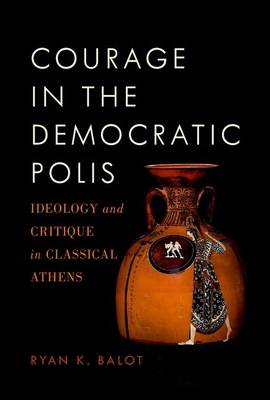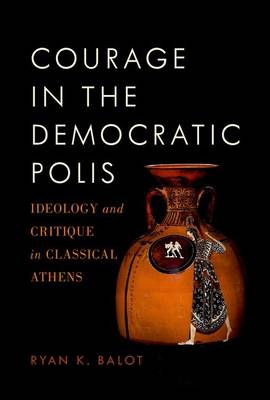
- Retrait gratuit dans votre magasin Club
- 7.000.000 titres dans notre catalogue
- Payer en toute sécurité
- Toujours un magasin près de chez vous
- Retrait gratuit dans votre magasin Club
- 7.000.000 titres dans notre catalogue
- Payer en toute sécurité
- Toujours un magasin près de chez vous
Courage in the Democratic Polis
Ideology and Critique in Classical Athens
Ryan K BalotDescription
In this careful and compelling study, Ryan K. Balot brings together political theory, classical history, and ancient philosophy in order to reinterpret courage as a specifically democratic virtue. Ranging from Thucydides and Aristophanes to the Greek tragedians and Plato, Balot shows that the ancient Athenians constructed a novel vision of courage that linked this virtue to fundamental democratic ideals such as freedom, equality, and practical rationality. The Athenian ideology of courage had practical implications for the conduct of war, for gender relations, and for the citizens' self-image as democrats. In revising traditional ideals, Balot argues, the Athenians reimagined the emotional and cognitive motivations for courage in ways that will unsettle and transform our contemporary discourses. Without losing sight of political tensions and practical conflicts, Balot illustrates the merits of the Athenian ideal, provocatively explaining its potential to enlarge our contemporary understandings of politics and ethics. The result is a remarkable interdisciplinary work that has significant implications for the theory and practice of democracy, both ancient and modern.
Spécifications
Parties prenantes
- Auteur(s) :
- Editeur:
Contenu
- Nombre de pages :
- 424
- Langue:
- Anglais
Caractéristiques
- EAN:
- 9780199982158
- Date de parution :
- 11-03-14
- Format:
- Livre relié
- Format numérique:
- Ongenaaid / garenloos gebonden
- Dimensions :
- 155 mm x 236 mm
- Poids :
- 748 g







